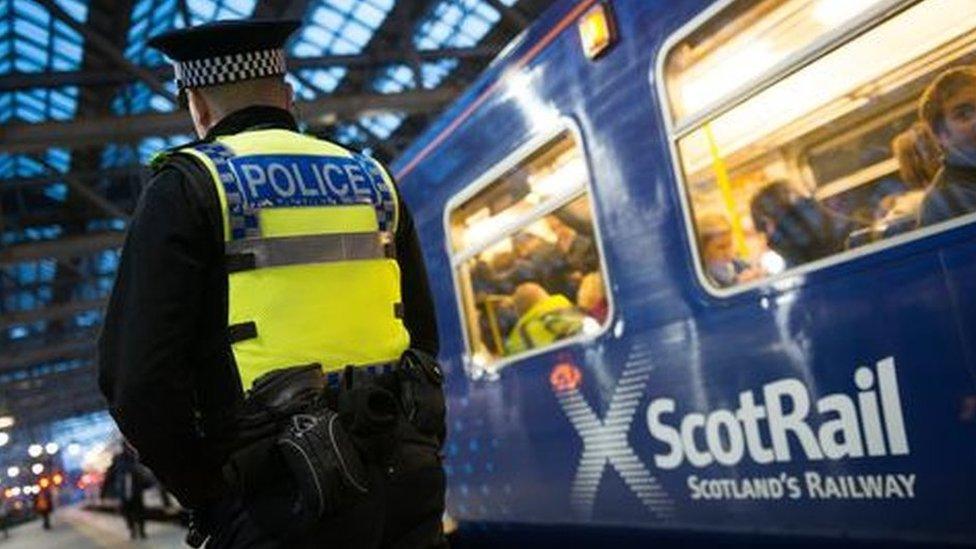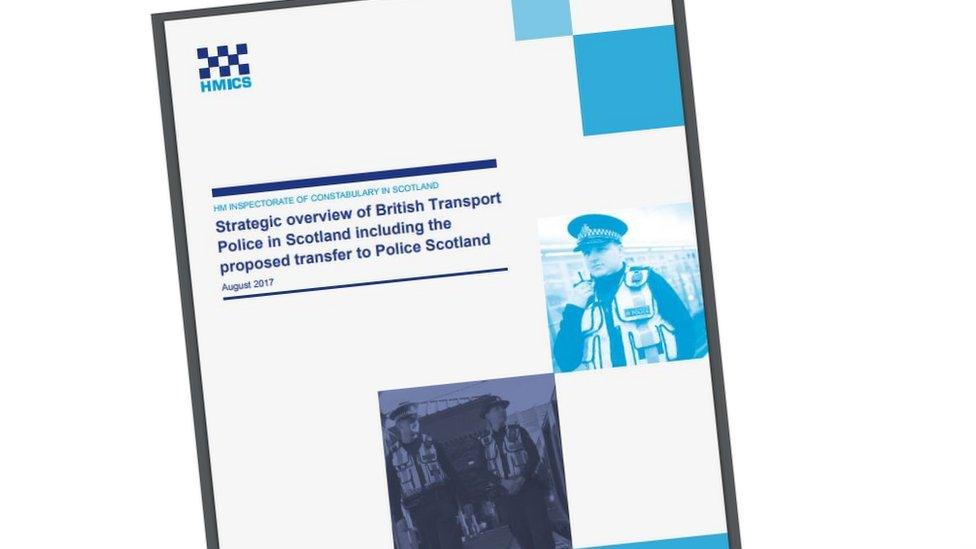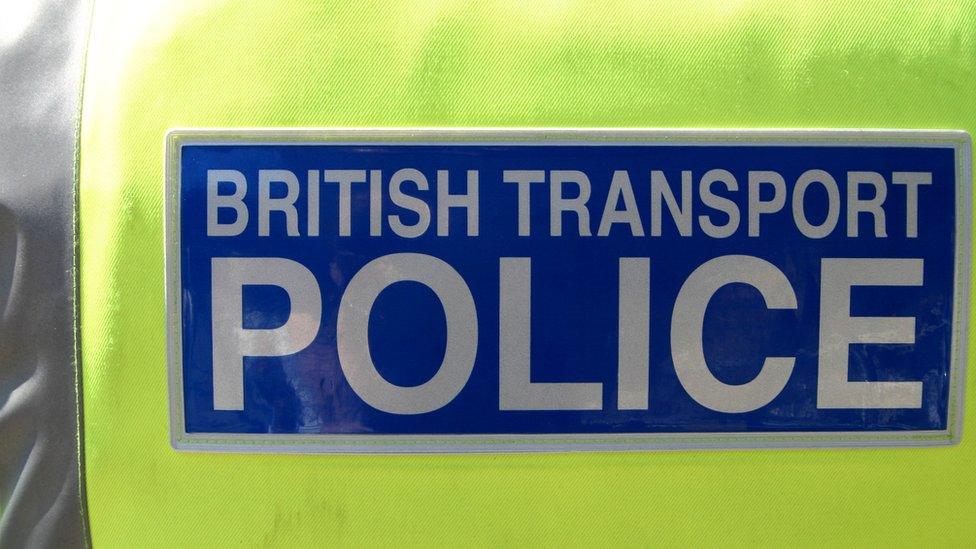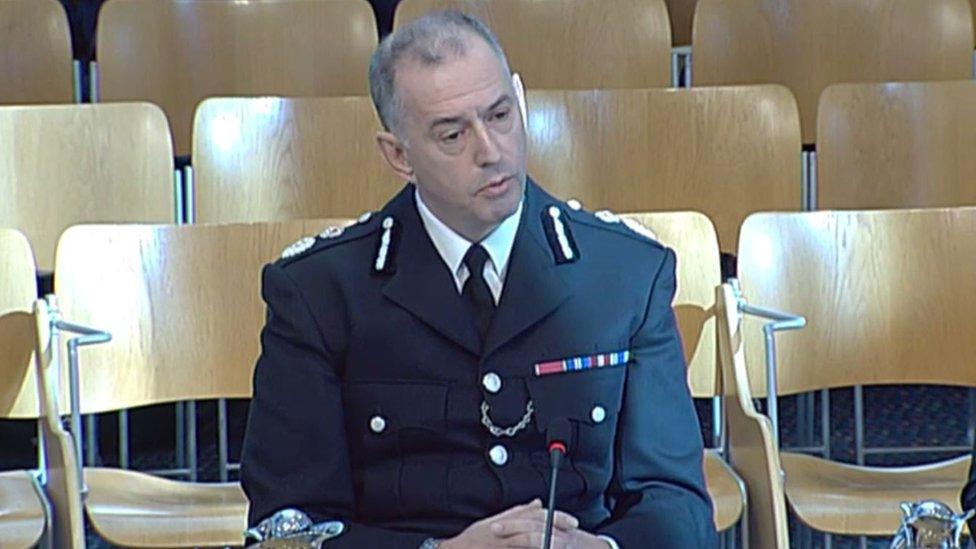'No business case' made for British Transport Police merger
- Published

The report said the benefits and risks of the merger were 'not fully investigated'
A report from Scotland's Police watchdog says no authoritative business case was made for the merger of British Transport Police and Police Scotland.
The decision was made by ministers, meaning the benefits, disadvantages and costs were not explained.
HM Inspectorate of Constabulary's overview of BTP says a detailed study of the risks should be undertaken.
The functions of BTP are due to be absorbed into the national force on 1 April 2019.
HM Chief Inspector of Constabulary in Scotland, Derek Penman, suggested this study be carried out by the Joint Programme Board (JPB) which has been set up to manage the transfer.
He said the JPB also needs to look at the costs of the merger as there is uncertainty among stakeholders as to where the responsibility for them lies.

The review was published by Her Majesty's Inspectorate of Constabulary in Scotland
Interested parties such as rail operators are seeking reassurance that their current good relationship with BTP in Scotland will continue after 2019.
Post integration, the Scottish Police Authority (SPA) will assume oversight for the governance of BTP and Mr Penman suggests the authority considers developing knowledge of, and recruiting someone with a background in, the rail industry.
Mr Penman pointed out the unique structure of BTP meant the transfer was very different from the amalgamation of the Scottish police forces which led to the formation of Police Scotland.
But he said a number of the lessons learnt from the restructuring of Scottish policing were relevant.
Mr Penman said: "The scope and scale of the challenges and complexity of the transfer should not be underestimated. It is not a merger of one complete organisation with another, but the partial extraction of a function from one organisation and its integration into another organisation.
"While both organisations provide a policing service, there are fundamental differences in the way they operate. And throughout the transfer process, both police forces must continue to provide an effective service.
"This report contains a number of key findings which, if considered and acted upon by all those responsible for the transfer, should support its successful delivery."
'Staff uncertain about future'
The report, which is in two parts - one looking at the performance of British Transport Police and the other at the transfer - found that BTP in Scotland is currently outperforming the organisation as a whole.
Mr Penman commended the officers and staff of BTP who continue to look after the travelling public despite being uncertain about their own futures.
In its Scotland ("D") Division, BTP has 213 officers, 38 police staff and 26 special officers.
About 93 million rail passenger journeys are made in Scotland each year with D Division having responsibility for policing 2,800km of track and 358 rail stations.

British Transport Police will no longer have a distinct presence in Scotland after the merger
Some of the other key findings included:
The financial impact on railway policing in England and Wales of the transfer of railway policing in Scotland has not yet been fully assessed.
Police Scotland and BTP should consider the need for working together post-integration, and arrangements for the provision of mutual aid.
A railway policing workforce strategy should be developed to retain and sustain the railway policing specialism.
Rail operators should be consulted on the establishment of the Railway Policing Management Forum.
BTP's officers and staff need to be told about the transfer's impact on their terms and conditions and pensions as soon as possible.
- Published7 March 2017

- Published27 June 2017
